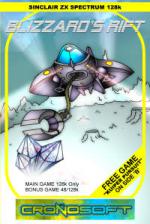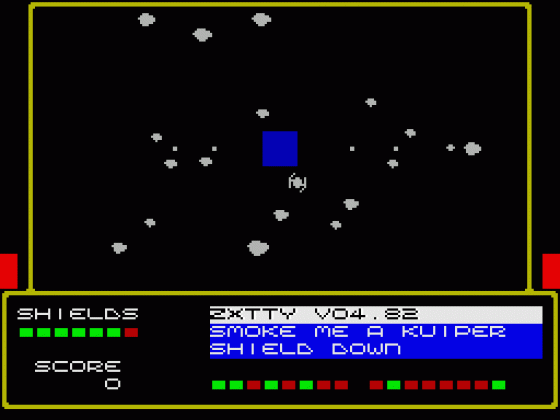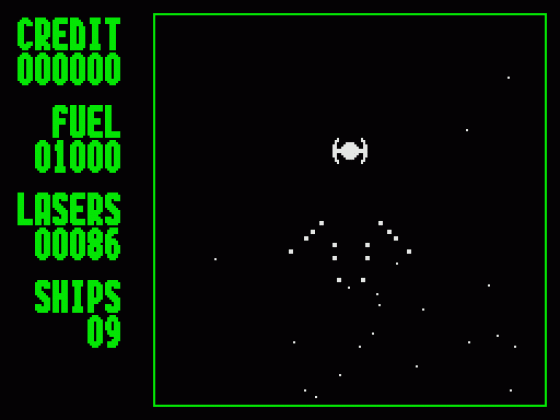Other Reviews Of Blizzard's Rift & Kuiper Pursuit For The Spectrum 128K
Retro Round Up
Alone in deep space sits Ace Commander Edwards, smoking his kuipers and eating seeds for breakfast before popping a magic pill to take his waistline back down to 32". That's all happening in this month's round up of newly released retro games
Blizzard's Rift/Kuiper Pursuit (Cronosoft)
A review by Dave E (Everygamegoing)
Blizzard's Rift (Cronosoft)
Typical, eh? You wait ages for a new Sinclair ZX Spectrum game to be released, and then two come along at once. Shaun takes a look at Blizzard's Rift, by Jonathan Cauldwell.


 1st August 2007
1st August 2007



